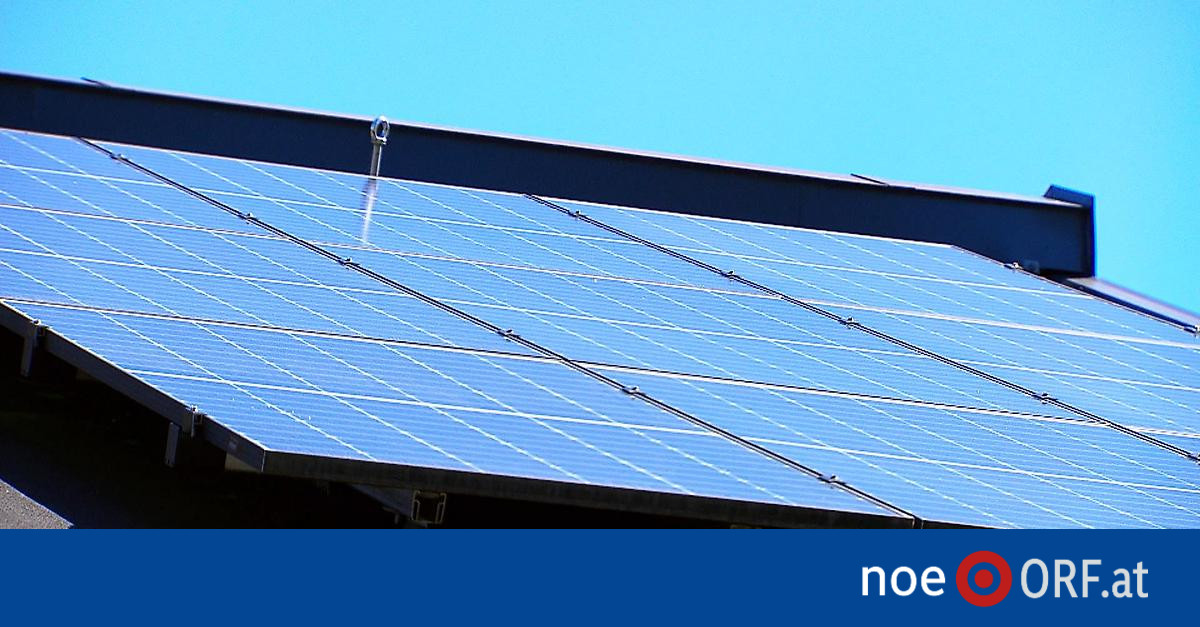Approval for solar electricity generation appears to be very high in Lower Austria: 94 percent of those surveyed say more should be invested in solar energy. Wind and hydropower also have high approval, at about 80 percent. Only coal and gas (19%) performed poorly. 12% of those surveyed believe that more should be invested in nuclear energy in Lower Austria.
The representative survey was conducted among 600 people in Lower Austria aged 16 years and over using computer-assisted telephone interviews. Particular emphasis has been placed on photovoltaic systems: However, opinions differ on the location of photovoltaic systems.
While approval for expanding PV systems in the private sector – that is, in residential complexes or private homes – is very high at 94 percent, only 44 percent want to expand them to open spaces such as meadows or fields. Every second person agrees with the statement “I don’t want any PV systems in the open spaces of my community.” The proportion of those who say they are bothered by large photovoltaic power plants located in open spaces outside the city is equally high. However, expansion in this area is likely to continue in line with climate goals.
Expert: “Expansion in closed areas is not enough”
The state of Lower Austria has set itself the goal of increasing photovoltaic capacity tenfold by 2030. “However, PV installations on rooftops and other closed surfaces will not be enough to achieve the goal,” says Hubert Fechner, Chairman of the Board of Directors of Austrian technology platform Photovoltaik Austria. “The reason why large-scale systems must also be planned on poor agricultural land.” Analytics from the club will also show that.
Outdoor PV systems are also much better than their reputation, at least when it comes to biodiversity systems: “These areas develop biodiversity that we rarely find in nature,” Fechner told noe.ORF.at. This is also the case with agricultural photovoltaics, where agriculture and solar energy are combined.
Policy is needed after crises
Past crises, especially high inflation, have also changed the energy supply in Lower Austria. Residents are noticing this too: about four out of five respondents believe that the current crisis situation is having at least a strong impact on energy production.
Many people see a need for policy in this regard: 90 percent of Lower Austria’s population believes that the federal and state governments should do more to promote the expansion of renewable energy sources. 82% expect this from their community. “This is actually a political demand to do more here,” says Paul Isselsberg, a pollster at IMAS. When it comes to expansion, security of supply and prices are likely to be particularly important to those surveyed.
In response to the argument that power grids are not developed well enough, Fechner says actions to expand the power grid are continuing. It’s not just about expanding power grids, it’s also about getting to know distribution networks better: “PV cells don’t cause any major problems most of the year because they rarely operate at maximum. It would be great if power grids were always fed with photovoltaics when Possible, and that the photovoltaic cells are fed limitedly or stopped only when this is technically necessary.

“Food practitioner. Bacon guru. Infuriatingly humble zombie enthusiast. Total student.”








More Stories
Kyiv: Russian Kursk offensive halted
US Presidential Election: Former US Government Officials Warn Against Donald Trump's Election
Netherlands wants to leave asylum system